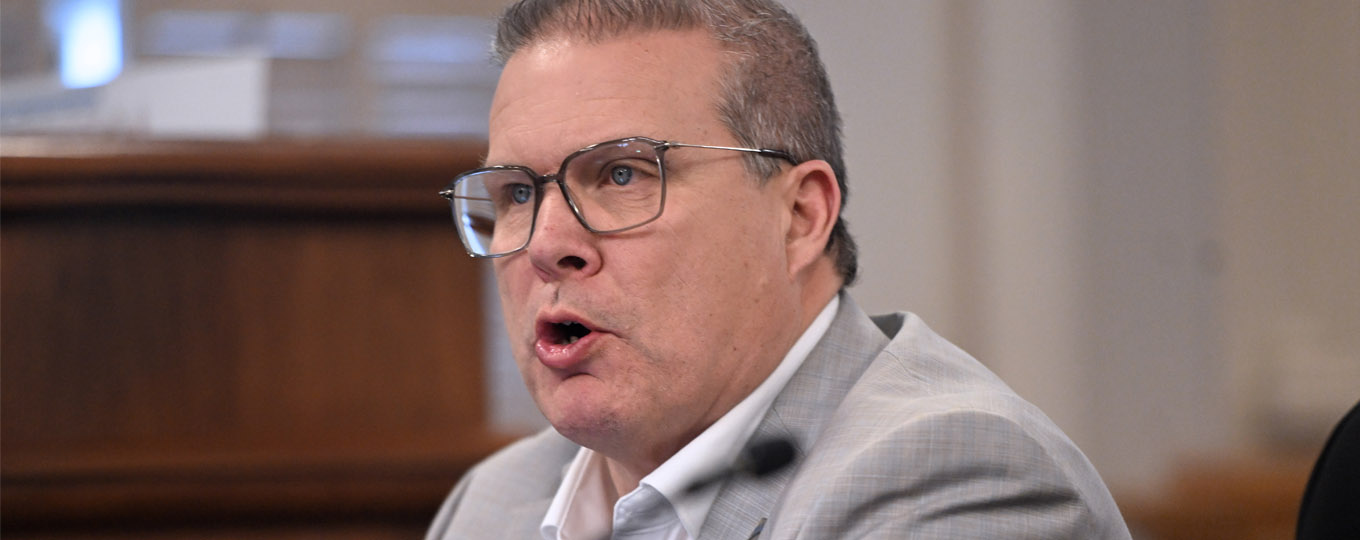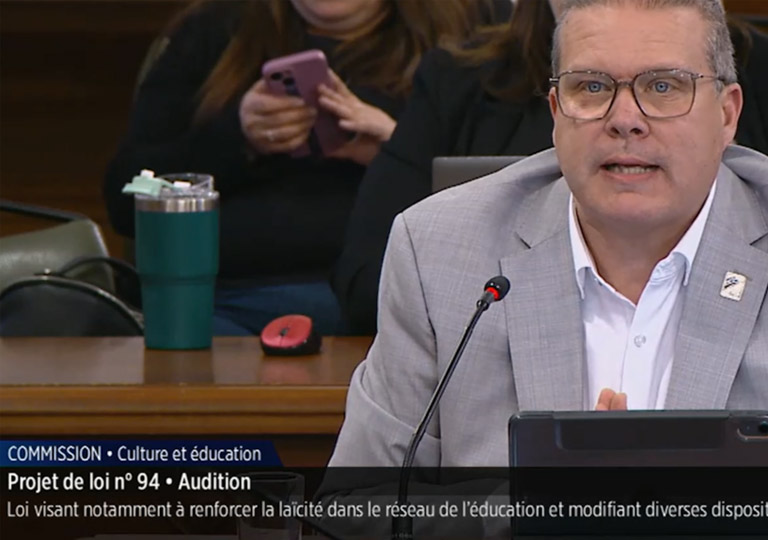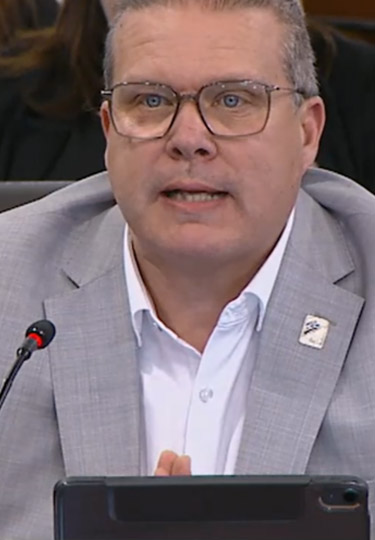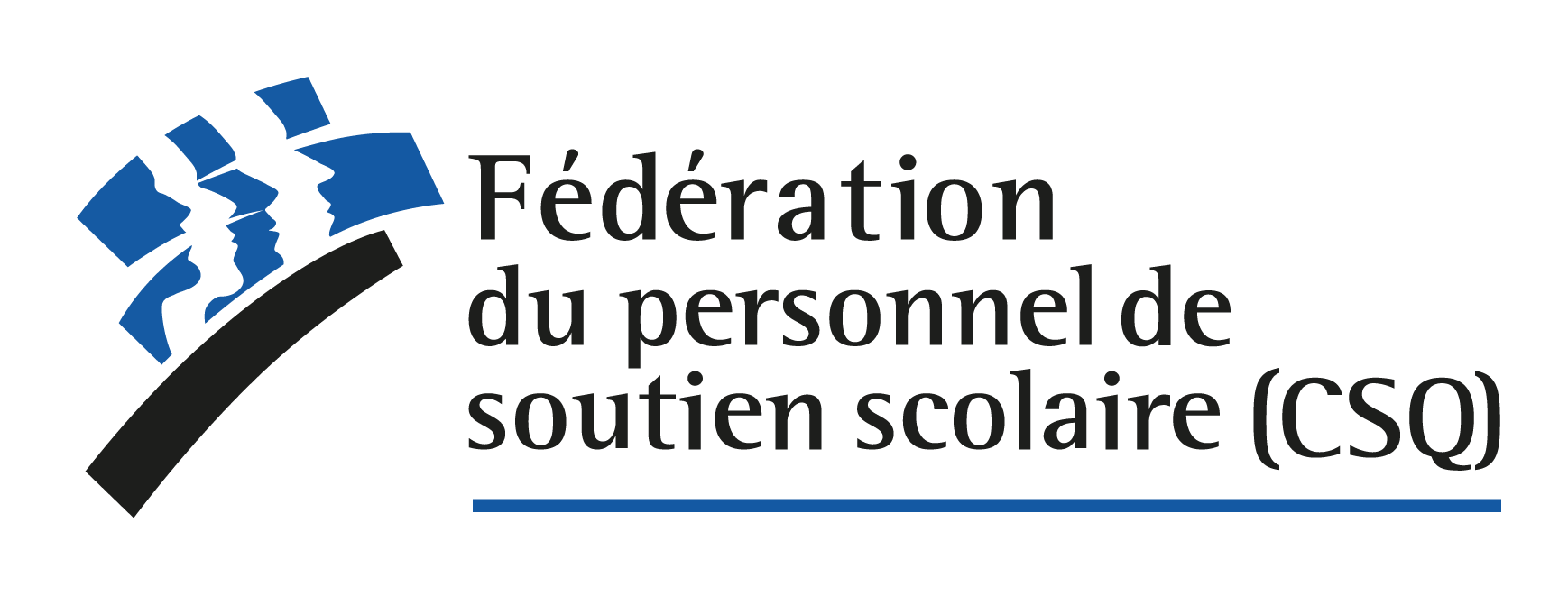PL94 – But In agreement on the Ends, but Concerned about the Means



24 April 2025
During its appearance before the Parliamentary Committee on Bill 94, the Centrale des syndicats du Québec (CSQ) stated that, while it supports the objectives, it remains uncertain about the proposed means.
CSQ President Éric Gingras presented the brief alongside Fédération du personnel de soutien scolaire (FPSS-CSQ) President Éric Pronovost and Fédération des professionnelles et professionnels de l’éducation du Québec (FPPE-CSQ) President Jacques Landry.
To begin with, Éric Pronovost emphasizes that “We fully support the objectives of the bill: to defend secularism and gender equality in the education system, as well as to ensure the quality of educational services. We reiterate our full cooperation in helping the government and the Ministry address the challenges facing our educational system. But several of the measures being proposed are of concern to us because of some questionable conflations and anticipated harmful effects, particularly for those working in our schools and on the life of the community.”
A Step Back is Needed
With this in mind, the CSQ and its federations are proposing a step back from certain measures and are asking that school system workers be consulted on them. More specifically, the CSQ is calling for a moratorium on the ban on the wearing of religious symbols for all school system staff in order to better analyze the impacts on the community.
They are also recommending withdrawing the following provisions in order to better assess them: those modifying the rights and obligations of teachers, those requiring the submission of pedagogical planning and annual evaluations of all teachers in the public school system, the measure dealing with the creation of committees on the quality of educational services, and the measure on the publication of a ministerial guide on best practices.
FPSS-CSQ President Éric Pronovost maintains that “the intentions behind the bill may be laudable, but if poorly implemented, they risk exacerbating the shortages in our schools, depriving students of essential services, and further weakening the education system. It is possible to respect the values of secularism while protecting the fundamental rights of educational staff.”
“Regarding the use of French with students, we would like an exemption for students with disabilities. Everyone knows that these students often have significant developmental limitations. We believe this needs to be taken into account with an exemption. Professional staff must be given the autonomy required to determine, in their opinion, what measures are appropriate,” adds FPPE-CSQ President Jacques Landry.
The CSQ and its federations feel that, even though it is not the Ministry’s intention, when it addresses problems related to exceptional cases as relevant to the entire public school system and responds with a series of regressive measures against staff, the vast majority of whom are women, the government is sending a demeaning message. Finally, the union leaders share the concerns of other stakeholders about the use of power to apply exemptions to our charters.
“Our education system is maintained by more than a hundred thousand competent and dedicated workers. What they need is more recognition, more appreciation, and sufficient resources at the disposal of the communities. This is why we are calling for a broad collective reflection on the future of education and equal opportunity,” concludes CSQ President Éric Gingras.
To view the CSQ brief, click here.
